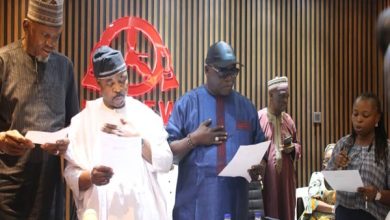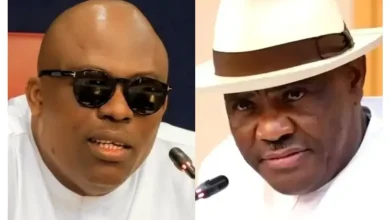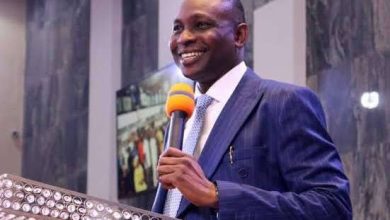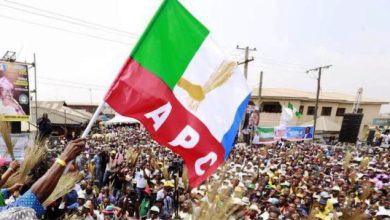FG: N10.4trn spent on fuel subsidy in 14 years
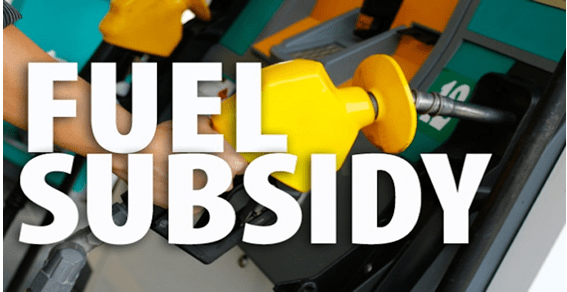
The Federal Government, yesterday, disclosed that Nigeria spent a whooping N10.413 trillion on fuel subsidy between 2006 and 2019, a period of 14 years.
Minister of Information and Culture, Alhaji Lai Mohammed, who made the disclosure at a media briefing in Abuja, said the quantum of fund spent subsidising petroleum products during that period translated to an average of N743.8 billion per annum. Mohammed, who was joined at the briefing by the Minister of State for Petroleum Resources, Chief Timipre Sylva, and Minister of Power, Alhaji Saleh Mamman, said the cost of running the fuel subsidy scheme was too high and unsustainable.
According to figures provided by the Nigerian National Petroleum Corporation (NNPC), the breakdown of the 14-year subsidy regime showed that Nigeria spent the sum of N257 billion in 2006: N272 billion in 2007; N631 billion in 2008; N469 billion in 2009 and N667 billion in 2010. Similarly, the scheme gulped the sum of N2.105 trillion in 2011; N1.355 trillion in 2012; N1.316 trillion in 2013 and N1.217 trillion in 2014.
The cost dramatically dropped to N654 billion in 2015; N144.3 billion in 2017; N730.86 billion in 2018 and N595 billion last year.
However, the data did not provide the figure for 2016 and also gave no explanation for the omission. Mohammed, who acknowledged the public outcry trailing the recent increase in the pump price of petrol as well as the hike in electricity tariff, said that the Federal Government was not unmindful of the pains associated with these developments at this time and will continue to seek ways to cushion the pains, especially for the most vulnerable Nigerians.
“The government is providing cheaper and more efficient fuel in form of auto gas. Also, government, through the PPPRA, will ensure that marketers do not exploit citizens through arbitrarily hike in pump prices. That is why the PPPRA announced the range of prices that must not be exceeded by marketers,” he said.
Exposed!! Popular Abuja doctor revealed how men can naturally and permanently cure poor erection, quick ejaculation, small and shameful manhood without side effects. Even if you are hypertensive or diabetic . Stop the use of hard drugs for sex!! It kills!
The minister said that in spite of the recent increase in the price of fuel to N162 per litre, petrol prices in Nigeria remain the lowest in the West/Central African sub-regions. Mohammed claimed that the price of a litre of petrol in Ghana is N332 while the same quantity sells for as high N549 in Senegal.
“Outside the sub-region, petrol sells for N211 per litre in Egypt and N168 per litre in Saudi Arabia. You can now see that even with the removal of subsidy, fuel price in Nigeria remains among the cheapest in Africa,” he said. The minister described hike in the cost of electricity as a “service-based tariff adjustment by the Distribution Companies (DisCos) and attributed it to the fallout of the privatisation of the sector.
“The truth of the matter is that due to the problems with the largely-privatized electricity industry, the government has been supporting the industry. To keep the industry going, the government has so far spent almost N1.7 trillion, especially by way of supplementing tariffs shortfalls.
“The government does not have the resources to continue along this path. To borrow just to subsidize generation and distribution, which are both privatized, will be grossly irresponsible.
“But in order to protect the large majority of Nigerians who cannot afford to pay cost-reflective tariffs from increases, the industry regulator, NERC, has approved that tariff adjustments had to be made but only on the basis of guaranteed improvement in service. Under this new arrangement, only customers with guaranteed minimum of 12 hours of electricity can have their tariffs adjusted.
Those who get less than 12 hours supply will experience no increase. This is the largest group of customers. “Government has also noted the complaints about arbitrary estimated billing.
Accordingly, a mass metering programme is being undertaken to provide meters for over five million Nigerians, largely driven by preferred procurement from local manufacturers, and creating thousands of jobs in the process.
“NERC will also strictly enforce the capping regulation to ensure that unmetered customers are not charged beyond the metered customers in their neighbourhood. In other words, there will be no more estimated billings,” he said. The government, Mohammed said, would also take steps to connect those Nigerians who are not even connected to electricity at all.
The minister also noted that despite the recent service- based tariff review, the cost of electricity in Nigeria is still cheaper or compares favourably with that of many countries in Africa.
According to him, while Nigeria pays N49.75 per kilowatt, Senegal pays N71.17, Guinea pays N41.36, Sierra Leone pays N106.02 and Liberia N206.01. He added that Niger Republic pays N59.28, Mali pays N88.28, Burkina Faso pays N85.09, while Togo pays N79.88.
The minister noted that “the timing of the two necessary adjustments, in the petroleum and power sectors” was a coincidence and not a deliberate attempt to inflict pains on Nigerians. He said that government was aware of the plot by the opposition to make political capital out of the fuel price and electricity tariff hikes, but urged those opposed to it to desist from fomenting trouble.
“The opportunistic opposition and their allies are playing dirty politics with the issue of petrol pricing and electricity tariff. Please note that these naysayers did not complain when the price adjustment led to lower petrol prices on at least two occasions since March. “Nigerians must, therefore, renounce those who have latched onto the issue of petrol pricing and electricity tariff review to throw the country into chaos,” Mohammed said.
Speaking in the same vein, Sylva said with the loss of 60 per cent of the nation’s national income due to COVID-19, fuel and electricity subsidies were no longer feasible. He said due to the pandemic, demand for crude oil, the mainstay of the nation’s economy dropped, affecting earnings.
“OPEC said that the only way to increase crude oil prices is to reduce production and we shut down our production to 1.42 million barrel per day from 2 million barrel per day.
“Before COVID-19, crude oil prices was in the range of over $60 per barrel, today, in spite of all the cut in production, we have not been able to achieve more than $45 per barrel. “You can see that there is a crisis at hand and the only way to adjust is to stop subsidy, which previous administrations have attempted to do.
“We have gotten to that point now,” he said. The minister called for understanding and support of Nigerians, stressing that it is in the best interest of a sustainable national economy.

